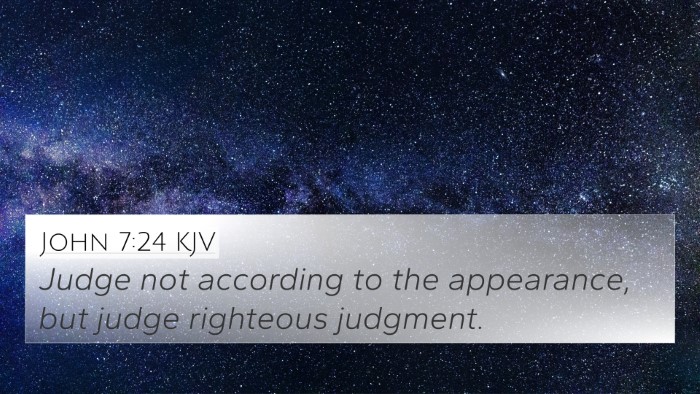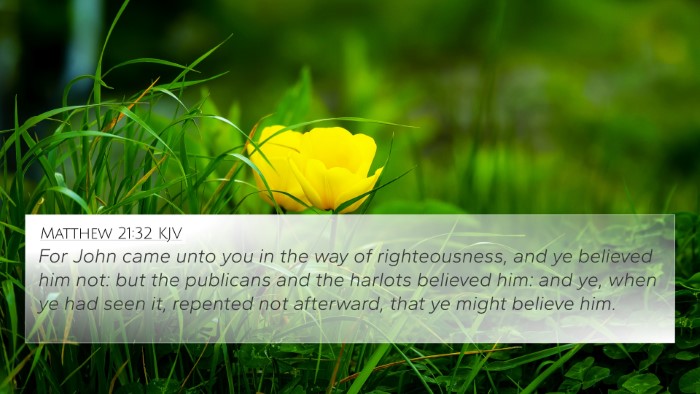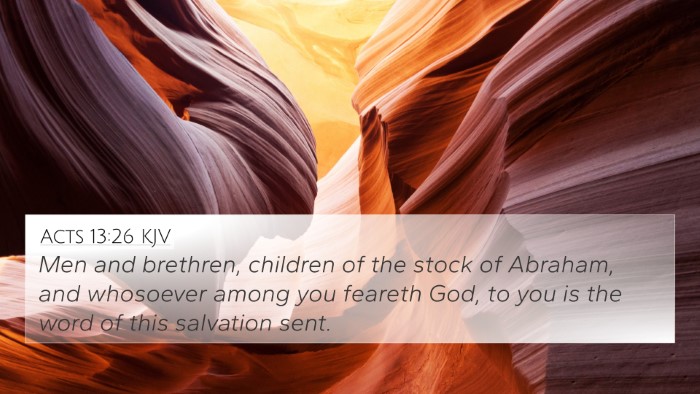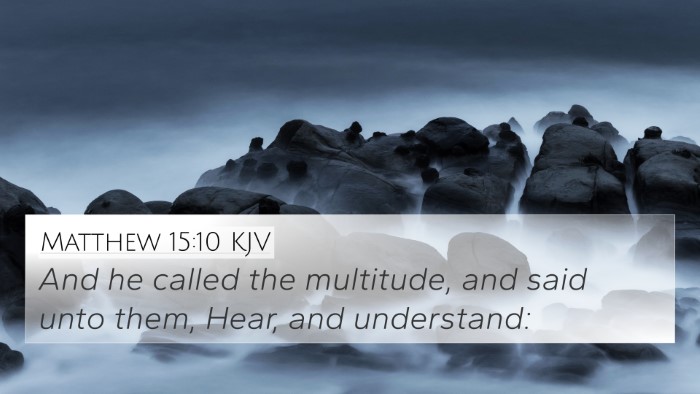Understanding Luke 12:57
Verse: "Yea, and why even of yourselves judge ye not what is right?" (Luke 12:57, KJV)
This verse is located within a broader discourse of Jesus, where he emphasizes the importance of discernment and self-awareness in moral judgment. The context shows a critical concern for individuals to evaluate their lives and responsibilities thoughtfully.
Summary of Meaning
This passage can be synthesized into several key themes:
- Emphasis on Personal Responsibility
- The Necessity of Self-Evaluation
- The Importance of Discernment in Judgment
Commentary Insights
Matthew Henry: Henry underscores the expectation that believers should use their faculties to make wise and discerning decisions. He suggests that Jesus prompts us to engage in self-reflection and moral reasoning rather than being complacent or reliant on external opinions.
Albert Barnes: Barnes comments on the implications of the phrase "judge ye not what is right." He emphasizes that individuals are often quick to judge others while failing to assess their own situations. This verse serves as a reminder to avoid hypocrisy and to consider one's own life choices critically.
Adam Clarke: Clarke points out that Jesus's question forces listeners to confront their inner deliberations. He suggests that understanding one's morality requires an honest examination of one's values and actions, urging believers to apply sound judgment to their conduct.
Cross-References
Luke 12:57 connects to multiple themes and verses throughout the Bible. Here are some notable cross-references:
- Matthew 7:1-5: "Judge not, that ye be not judged." This passage mirrors Jesus' call for self-examination before passing judgment on others.
- Romans 14:10: "But why dost thou judge thy brother?" This verse emphasizes individual accountability and the importance of not judging others in the faith community.
- 1 Corinthians 11:31: "For if we would judge ourselves, we should not be judged." Self-evaluation is key to spiritual growth and avoiding divine judgment.
- James 4:12: "There is one lawgiver, who is able to save and to destroy: who art thou that judgest another?" This highlights the authority of God over judgment.
- Proverbs 3:5-6: "Trust in the Lord with all thine heart; and lean not unto thine own understanding." This speaks to reliance on divine wisdom rather than personal notions of right and wrong.
- Galatians 6:4: "But let every man prove his own work." This reinforces the necessity for self-assessment in one's life and works.
- Philippians 2:12: "Work out your own salvation with fear and trembling." This further emphasizes personal responsibility in one’s spiritual journey.
- Hebrews 5:14: "But strong meat belongeth to them that are of full age, even those who by reason of use have their senses exercised to discern both good and evil." Spiritual maturity involves the ability to judge rightly.
- Proverbs 4:7: "Wisdom is the principal thing; therefore get wisdom." This verse encourages pursuing wisdom as a cornerstone of righteous living.
- John 7:24: "Judge not according to the appearance, but judge righteous judgment." This reinforces the idea of discerning beyond superficial assessments.
Connecting Themes and Concepts
The verse can be understood within the larger discourse found throughout the Bible concerning judgment and discernment. Here are some thematic connections:
- Judgment and Self-Reflection: The importance of self-reflection is mentioned in various places, calling believers to assess their own lives critically.
- Personal Accountability: The biblical narrative stresses the importance of accountability in one's actions and the consequences of those actions.
- Discernment: Discernment is a recurring theme in scripture, connecting to wisdom literature found in Proverbs and the New Testament.
- Connection with the Gospels: Parallel teachings of Jesus in Matthew and Mark further define the call for righteous judgment.
Tools for Deep Study
To better understand Bible verses like Luke 12:57, consider employing the following tools:
- Bible Concordance: Use this to find related terms and concepts across scripture.
- Bible Cross-Reference Guide: A resource that links verses to one another for comparative study.
- Bible Reference Resources: Various commentaries and study guides can offer deeper insights.
- Bible Chain References: This method follows a thematic thread through scripture, illuminating connections.
Conclusion
Luke 12:57 urges believers to engage in self-evaluation and to judge rightly according to the spiritual truths revealed by God. It serves as a reminder that discernment is essential in both personal conduct and communal relationships. By utilizing cross-references and exploring key themes, one can gain a deeper understanding of scripture and its implications for life.











